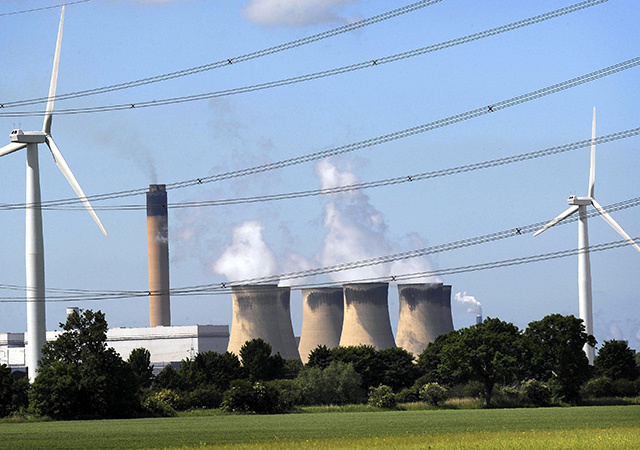
The European Union is going through a difficult period, mainly because of the economic recession.
There have been many tensions between the more prosperous member countries, such as Germany, and those requiring financial bailouts, such as Greece and Italy. Opposition to EU membership in the UK has increased, as illustrated by the recent successes of UKIP in the English local elections, and Prime Minister David Cameron has promised a referendum on UK membership.
As an economist, I have serious reservations about some of the EU’s activities, notably the Common Agricultural Policy (CAP) and to a lesser extent the Common Fisheries Policy (CFP).
The CAP accounts for about 50% of annual EU spending and is a very poor and inequitable policy which favours farmers at the expense of consumers. I do not understand how the UK and other governments have allowed the CAP to last for so long. The CFP is little better.
In contrast, I have done a lot of work for the Energy Directorate of the European Commission (EC) and believe that the Directorate does an excellent job on the whole.
One of the flagship energy policies is popularly known as 20/20/20, which aims for a 20% reduction in carbon emissions, a 20% increase of the share of renewable energy and a 20% reduction in energy consumption by 2020 throughout the EU.
Some countries have made excellent progress with these targets. Indeed, the Scottish Government probably has the most ambitious renewable energy targets in Europe and has made good progress.
However, one of the EU’s key energy policies, the Carbon Emissions Trading System (ETS), has turned into a fiasco and is in danger of becoming as notorious as the CAP and CFP. I am not surprised, because in my opinion the policy was badly thought out, but the scale of the recent collapse is certainly beyond my expectations.
The ETS, launched in 2005, places limits on carbon emissions for 11,000 installations, including power stations and the manufacturing industry. In total, it covers 45% of the EU’s carbon dioxide emissions. Each plant is given a set number of carbon allowances, calculated using emissions from previous years, to cover its carbon dioxide discharges. Installations that emit less than their limits, can sell their surplus carbon allowances.
In theory, the cost of buying the allowances, either directly from other companies or on the open market, is supposed to provide financial incentives for companies to invest in carbon reducing technology or shift to less carbon intensive energy sources such as renewables.
But after reaching a peak of nearly 30 euros (£25) per tonne in the summer of 2008, prices have steadily fallen. By January, they had crashed to under 5 euros, providing little, if any, financial incentive for companies to reduce emissions.
The European Commission (EC) reacted by trying to reduce the supply of carbon allowances by delaying the release of 900million allowances, described as “backloading”. However, that proposal was rejected by the European Parliament – rightly in my opinion – and since then carbon prices have fallen further to about 3 euros per tonne.
The ETS policy has become a fiasco. The recent attempts to rescue it have also been badly thought out.
No sensible economist – such as me – seems to have been consulted. A much more effective policy would be simply to impose a tax on all carbon emissions. That would force up the price of coal-fired electricity and the other products, with the result that demand for them would fall and/or the polluters’ profits would be reduced.
There would then be a switch to renewable energy sources consistent with the 20/20/20 objectives. That could be further encouraged by subsidies for renewables, as we already have for onshore wind in Scotland.
The levels of the carbon taxes and renewable subsidies could be adjusted over time in the light of actual demand and supply, possibly even annually, because the changes would need to be relatively small from year to year in order not to discourage investment. For example, I am strongly of the opinion that the current subsidies for onshore windfarms in Scotland are far too high, so that the developers involved are making what we call super-normal profits, which should be reduced. However, such a carrot-and-stick policy can be flexible.
Instead, some EC bureaucrats in Brussels came up with the Emissions Trading Scheme which is seriously flawed and can only be maintained with stupid subsidies. I would like to think that it will be abandoned soon but then the Common Agricultural Policy still survives, which makes me much less optimistic.
Economist Tony Mackay is MD of Mackay Consultants
Recommended for you
